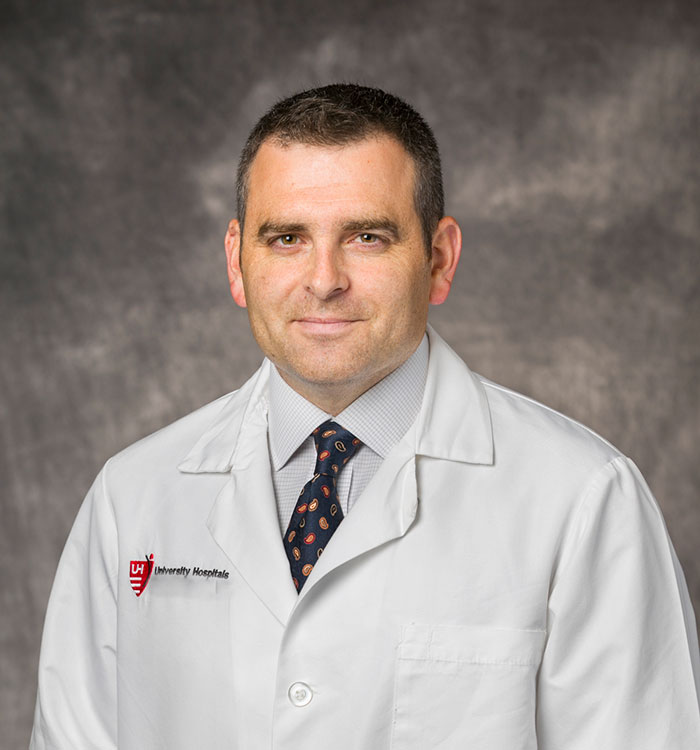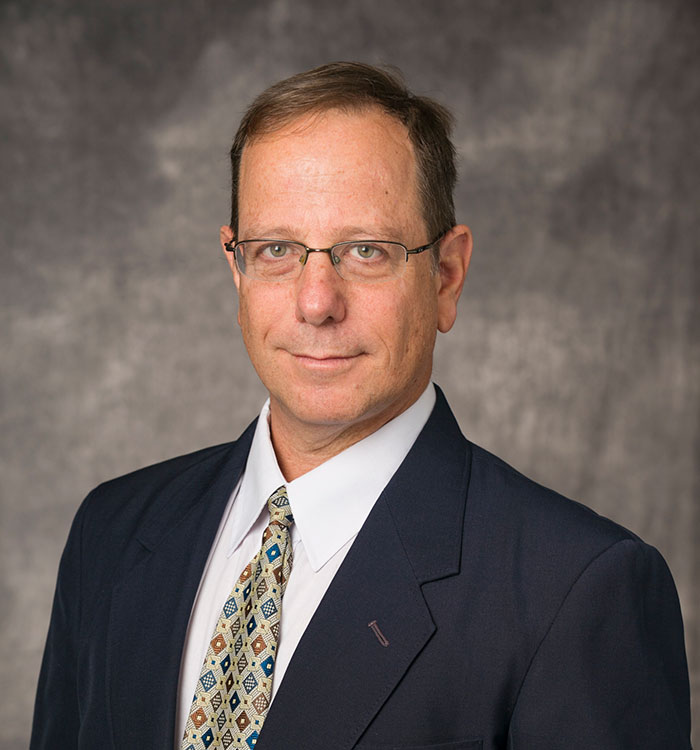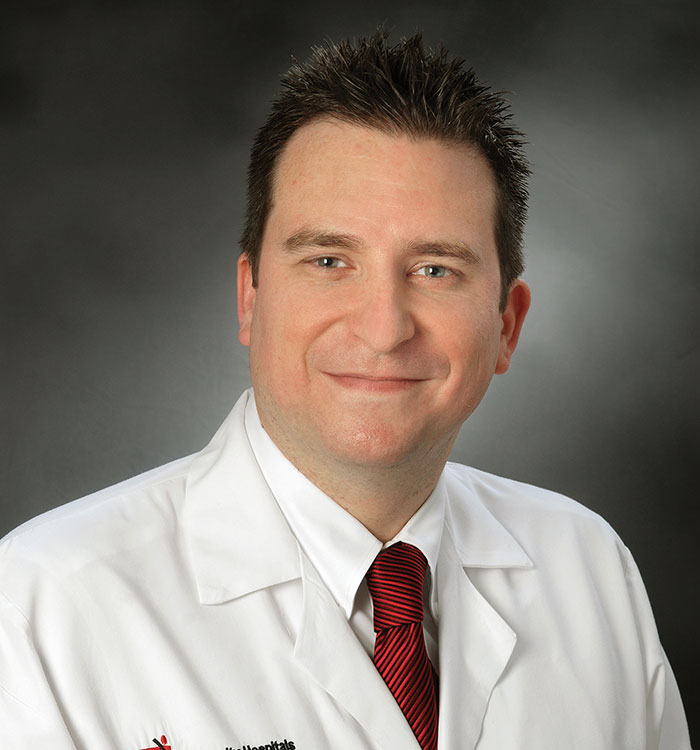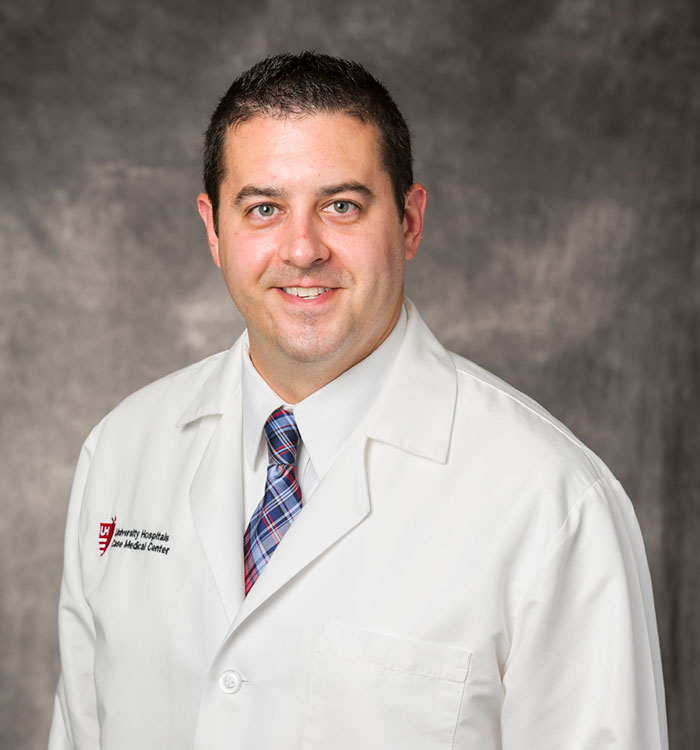Life Saving Care When Every Second Counts
February 17, 2019
University Hospitals’ Interdisciplinary Shock Team is saving lives with coordinated rapid response
Innovations in Cardiovascular Medicine & Surgery - Winter 2019
Cardiogenic shock is among the most lethal states for the human body. When the heart is unable to pump sufficiently, tissue hypoperfusion and hypoxia can rapidly result in multisystem organ failure. In fact, national figures show that, despite best practices in emergency care, as many as one in two patients experiencing cardiogenic shock does not survive.
THE CRITICAL FIRST HOUR
To improve outcomes for this high-risk population, a collaborative group of specialists at University Hospitals launched the Interdisciplinary Shock Team, an innovative system-integrated shock program offering the most advanced technology and care across the community.
 Francis (Ted) Lytle, MD
Francis (Ted) Lytle, MD Benjamin Medalion, MD
Benjamin Medalion, MD Gregory Stefano, MD
Gregory Stefano, MD Michael Zacharias, DO, FACC
Michael Zacharias, DO, FACCLast year, UH physicians initiated ECMO (extracorporeal membrane oxygenation) to stabilize acute shock 52 times and achieved a mortality index of .99 — one of the lowest among U.S. News and World Report top-ranked heart centers. Additionally, over the past two years, shock patient volume at UH has increased nearly 40 percent.
SAVING LIVES
When Richard Mack, age 55, experienced sudden chest pain while raking leaves, he was rushed to a local emergency department. Despite heart catheterization to open a blocked left anterior descending artery (LAD), Mack remained in cardiogenic shock and was air-transported to UH Cleveland Medical Center. There, Shock Team members determined that he needed mechanical circulatory support through VA ECMO and placement of an Impella® heart pump.
Thanks to skilled rapid response, the patient recovered with outstanding results and was discharged three weeks later — in time to celebrate the holidays with his grateful family.
“Mr. Mack’s story is a heartwarming example of team members strategizing in real time to provide early and appropriate intervention for an optimal outcome,” says Ted Lytle, MD, Director of Intensive Care at UH Harrington Heart & Vascular Institute, Division Chief, Critical Care Medicine, UH Cleveland Medical Center; and Assistant Professor, Anesthesiology and Perioperative Medicine, Case Western Reserve University School of Medicine
Two additional Shock Team activations exemplify the program’s system-wide reach. When a patient presented at UH Geauga Medical Center, a campus of UH Regional Hospitals with acute myocardial infarction, Gregory Stefano, MD, an interventional cardiologist at the UH Harrington Heart & Vascular Institute; and Clinical Assistant Professor, Case Western Reserve University School of Medicine, identified several blockages, successfully stented the most critical artery, placed Impella® and activated the Shock Team.
After receiving the life-saving care at his community hospital, the patient was transferred to UH Cleveland Medical Center for further medical management. Post discharge, he was able to return for elective surgery at UH Ahuja Medical Center to open remaining blockages.
In another case, a 911 call reported a young man unconscious in the snow on the streets of Cleveland. Finding the patient in ventricular fibrillation, first responders began CPR and transported him to UH Cleveland Medical Center, where Shock Team members utilized ECMO to support continued CPR and safely warm the patient’s blood. Amazingly, the patient was revived, extubated and experienced a tremendous recovery.
Whether a patient presents at a UH facility or another location throughout the region, a single phone call to the UH Transfer Center triggers an alert to on-call team members. The goal is to confer by phone within five minutes to determine a plan of action. Highly specialized quaternary care is executed by physicians in emergency medicine, critical care, interventional cardiology, heart failure and cardiac surgery, and supported by expert physician assistants, nurse practitioners, nurses and respiratory therapists.
“We have developed a mechanism to activate the right people to facilitate fast, smooth access to decision-making and immediate care to stop the spiral effect of cardiogenic shock, and supply the body with healthy oxygenated blood to prevent organ dysfunction as the heart recovers,” says Benjamin Medalion, MD, Surgical Director of Mechanical Circulatory Support at UH Cleveland Medical Center, Director, Cardiac Surgery, UH Ahuja Medical Center; and Professor of Surgery, Case Western Reserve University School of Medicine “Our patient stories are a testament to the high quality of what we are accomplishing.”
A NATIONAL LEADER
Looking ahead, UH is committed to serving as a national leader to educate cardiogenic shock care providers. Thanks to a recent generous $5 million gift from Angela and James Hambrick, UH is establishing a new Center of Excellence — the Hambrick Center for Cardiac Recovery at UH Harrington Heart & Vascular Institute. In the rapidly evolving healthcare environment, the Hambrick Center will enable UH physicians to remain at the forefront of the most advanced treatment and integrated processes to improve survival rates for patients throughout Northeast Ohio and across the country.
“By deploying the cardiogenic shock program throughout UH, we are able to offer expert patient-centered, multidisciplinary care for a highly mortal condition to every patient, regardless of location,” says Michael Zacharias, DO, FACC, Medical Director of Mechanical Circulatory Support at UH Harrington Heart & Vascular Institute; and Assistant Professor, Cardiovascular Medicine, Case Western Reserve University School of Medicine. “Being the first in the area to offer such highly specialized care to these critically ill patients is not only exciting but rewarding. We will continue to expand and focus on patient outcomes.”



